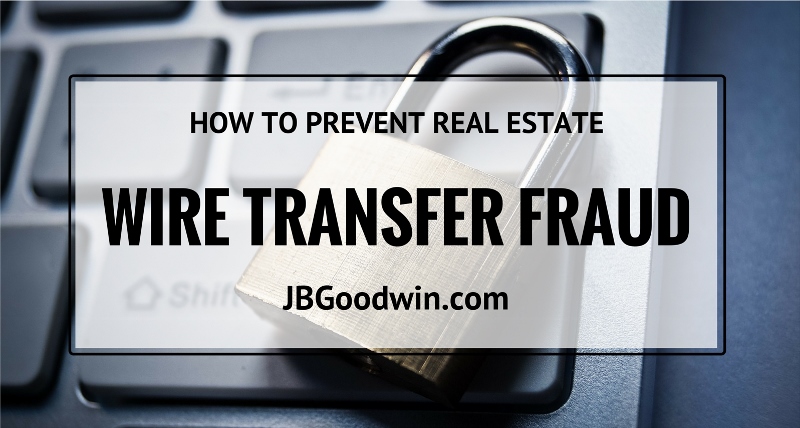
Imagine that you've just found your dream home. You've agreed on terms and you've signed a purchase contract. You're sent an email with wire transfer instructions, and you send off the money, knowing you're only a few steps away from owning your new home.
But the escrow agent or buyer never receives the money. You check your account, and the money's gone.
How Wire Fraud Works
Wire transfer fraud is the use of electronic communications to fraudulently obtain money, such as an email or phone scam. Here's how the typical real estate wire fraud scam works:
- Scammers identify the email address of a real estate agent or broker
- The scammers identify closing real estate deals, and access a client's confidential personal information
- The scammers send an email to the client with fraudulent wire transfer instructions
- The client follows the instructions, and the money is sent to the scammer
- The scammer immediately cleans out the bank account, and the money is lost forever
Reports of these types of scams have been growing in the United States over the past few year. Scammers can hack directly into the agent or broker's email, or simply gather public information to identify a deal that's near closing and send an email to the client from an address that closely mimics the email address of the agent.
There's very little that can be done after wire fraud takes place, so your best course of action is to protect yourself through preventative measures. Here are some helpful tips to avoid wire fraud, whether you're a home buyer, seller, or real estate agent.
To protect yourself from wire fraud, trust the experts at JB Goodwin to handle your Austin and San Antonio real estate transactions. Contact us today.
Be Aware and Be Skeptical
To avoid wire fraud, always start with the assumption that you, your agent, or your client are potential targets for an attack. It's not about being afraid or paranoid, but rather, knowing how to spot a scam. If an email seems off, trust your gut instinct.
- Do not trust any content received from unverified emails, especially with respect to financial information.
- Never click links or open attachments from unverified emails, as they may install malware on your system that can make you more vulnerable to a hack.
- Be suspicious of emails or phone calls from people asking you to verify personal or banking information.
- When following up on suspicious emails, don't rely on the phone numbers in email signatures, as these may be fake.
Take Technological Security Measures
While even the most state-of-the-art security systems can be compromised, it's important to follow at least the most basic technological security practices. These easy methods will go a long way to preventing fraud.
- Change all passwords on a regular basis, and don't use the same email and password combinations across multiple websites. Many hacks take place simply because the hacker was able to guess the victim's password.
- Don't send sensitive information via email. If necessary, use encrypted email.
- Never conduct business over unsecured WiFi. Hackers can easily intercept information over unprotected public networks.
- Use up-to-date firewall and anti-virus technologies to avoid malware attacks.
Communicate Offline
No matter what preventative measures you put in place, if all parties involved in your real estate transaction aren't aware or committed to preventing cyber theft through open, offline communication, you may still be at risk.
- For any upcoming transactions, contact all parties involved and make them aware of the possibility of fraud. This includes attorneys, buyers, sellers, escrow agents, real estate agents, and title agents.
- At any point in the transaction, and before any wire transfers take place, validate any and all instructions received via email with a phone call.
- If you're frequently involved in wire transfers, incorporate a warning about wire scams into your email signature.
- As much as possible, bring your banking and personal information with you when meeting face-to-face, and make sure to receive signed wire transfer instructions in writing.
Still have questions about wire transfer fraud? Contact us at JB Goodwin to handle all your Austin and San Antonio real estate questions and transactions today!
Posted by Mary Ann Castro on
Leave A Comment